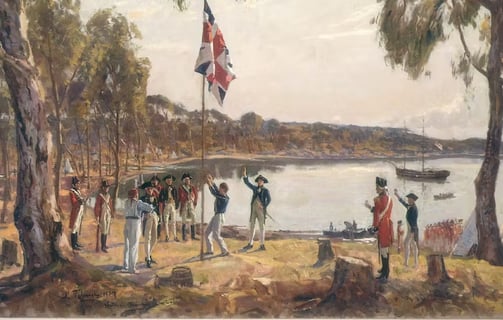Australia Day: A Reflection of History, Celebration, and Contemporary Debate
A history of Australia days, its history and current political sentiments.
Byron Parker
1/14/20242 min read


Australia Day: A Reflection of History, Celebration, and Contemporary Debate
1. The Origins of Australia Day
Australia Day, celebrated on January 26, marks the arrival of the First Fleet of British ships at Port Jackson, New South Wales in 1788. This day originally celebrated the founding of the colony of New South Wales. Over the years, it evolved from a small colonial celebration into a national holiday representing Australian identity and heritage.
Initially, Australia Day was a commemoration specific to New South Wales, known as "Foundation Day." However, as the nation grew, so did the significance of this day. It transformed into a public holiday recognizing the diverse society of Australia, its achievements, and its aspirations.


2. Celebrations Across the Nation
Australia Day is a day of community events, family gatherings, and national reflection. Key activities include:
Outdoor Gatherings: Many Australians celebrate with barbecues and picnics, enjoying the summer weather.
Sports: Cricket and other sports matches are common, reflecting Australia's love for sports.
Concerts and Fireworks: Cities often host public concerts and fireworks, attracting large crowds.
Ceremonies: Official ceremonies, including flag raising and the national anthem, are held to honor the day.
3. Current Perspectives and Debates


In recent times, Australia Day has become a day of deep reflection and discussion. For Indigenous Australians, this day is not a celebration but a reminder of the invasion and subsequent dispossession of their ancestors. This has led to alternative names like "Invasion Day" or "Survival Day."
The debate around Australia Day focuses on these contrasting views:
Indigenous Perspectives: Many argue that celebrating on January 26 overlooks the suffering of Aboriginal and Torres Strait Islander peoples. They advocate for a date change to foster inclusivity and recognition of Indigenous histories.
Historical Significance: Supporters of the current date emphasize its historical importance and see it as an opportunity to celebrate modern Australia, including its challenges and progress.
This ongoing debate showcases the evolving nature of Australian society, emphasizing the journey towards acknowledging its diverse history and striving for a unified future. As Australia grapples with these complexities, Australia Day remains a symbol of national pride for some and a poignant reminder of historical injustices for others. The debate continues, reflecting Australia's journey towards a more inclusive and reconciled nation.


Contact
Head Office Sydney
T: +61 451 655 655 (Benya)
T: +61 451 936 545
Email: aptstudyzone@gmail.com
Socials
Subscribe to our newsletter


Suite 407/661
George Street
Haymarket NSW 2000
Branch Office Bangkok
T: +66929 325 646 (Bee)
Email: pattama.davi02@gmail.com
201/125 Soi 1/13 Chaiyahphruek
Bang Buathong Village
Subdistrict Bang Bua Thong
Nonthabury
11110
Thailand
